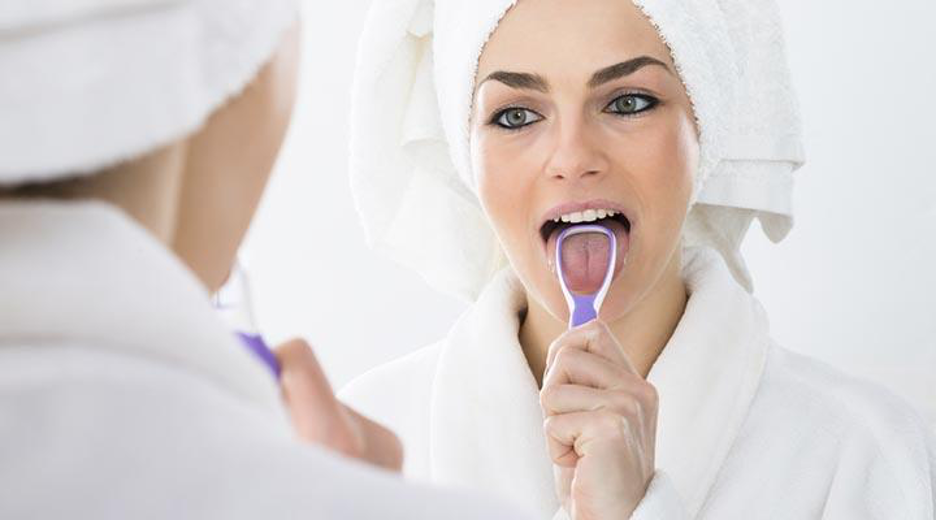
There’s no substitute for consistent brushing, flossing, and dental visits, but these oral health helpers could be great additions to your dental care routine.
1. Plaque Disclosing Tablets
These dental detectives contain a dye that stains plaque-filled areas you missed. After brushing, chew the tablet and swish for 30-60 seconds. Once you spit it out, look in the mirror to see which areas need more brushing.
2. Mouth Mirror
For those hard-to-see areas around your teeth, a small dental mirror works wonders. Run the mini mirror under warm water to prevent it from fogging.
3. Tongue Scraper
A tongue scraper cleans crevices and removes debris from your tongue. Your tongue contains billions of bacteria, so a scraper is essential to banish bad breath. After you brush, gently move your tongue scraper in a downward motion to remove any bacteria build-up.
4. Water Flosser
As an alternative to string floss, a water flosser can help with those awkward or hard-to-reach areas. A water flosser can also help protect gum tissue damage from vigorous or incorrect flossing techniques.
5. Dry Mouth Oral Rinse
Around 1 in 4 adults live with dry mouth, sometimes called xerostomia. Dry mouth is an uncomfortable condition that can affect taste, speech, and make individuals more likely to have bad breath. If you suffer from dry mouth a mouthwash designed to help moisturize the mouth can be a life saver. Many oral rinses designed to treat dry mouth also help to freshen breath and keep symptoms at bay for hours.
6. Teeth Whitening Strips
Stained teeth or teeth discoloration is one of the most common reasons people see a dentist. Food, certain drinks, medication, tobacco use, and aging can all lead to tooth discoloration. The good news is that good oral health care and seeing a dentist regularly can help prevent and remove stains. In addition to good oral health, teeth whitening strips can help brighten your smile. The American Dental Association recommends this brand because “the product is safe and has shown efficacy in whitening natural teeth when used according to the manufacturer’s instructions.”
It is always a good idea to talk with your dentist about which of these oral health helpers is the right fit for you.
